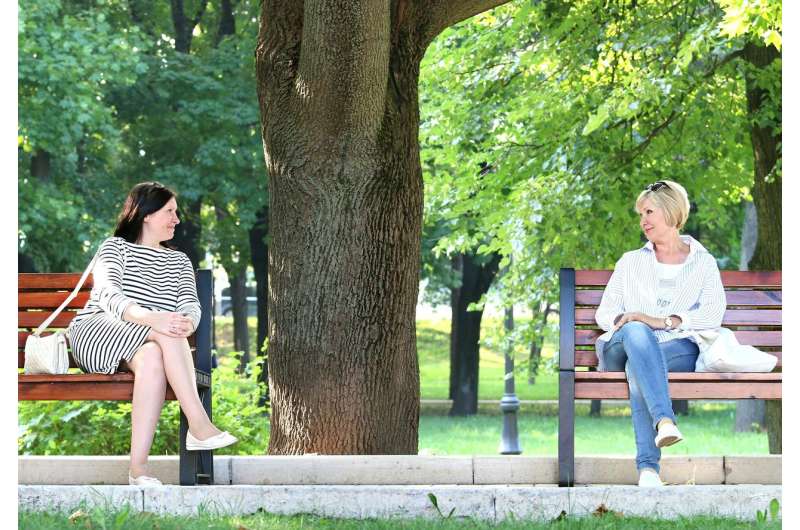This article has been reviewed according to Science X's editorial process and policies. Editors have highlighted the following attributes while ensuring the content's credibility:
fact-checked
peer-reviewed publication
trusted source
proofread
Study finds that better sleep is associated with lower loneliness

A new study to be presented at the SLEEP 2024 annual meeting found that better sleep health was associated with lower levels of loneliness, and this association was stronger among younger adults.
Results indicate that better sleep health was associated with significantly lower total loneliness, emotional loneliness and social loneliness. While better sleep health was associated with lower total and emotional loneliness across ages, this association was stronger for younger adults. However, age did not moderate the association between sleep health and social loneliness.
"Loneliness is an urgent public health crisis, and there is a pressing need for providers to better understand and treat it," said lead author and principal investigator Joseph Dzierzewski, who has a doctorate in clinical psychology and is vice president of research at the National Sleep Foundation in Washington, D.C.
"Our results highlight the important role that sleep plays in understanding loneliness across the adult lifespan. Perhaps efforts to improve sleep health could have a beneficial effect on loneliness, especially for young people."
According to the American Academy of Sleep Medicine, sleep is essential to health. The AASM and the Sleep Research Society recommend that adults should sleep seven hours per night on a regular basis to promote optimal health, productivity and daytime alertness.
The study involved 2,297 adults with a mean age of 44 years; 51% were male. Participants completed an online sleep health questionnaire and loneliness scale. The researchers analyzed the results using correlation and linear regression analyses along with moderation analyses.
In 2023 an advisory from the U.S. surgeon general warned about a public health crisis of loneliness, isolation, and lack of connection. It noted that even before the onset of the COVID-19 pandemic, approximately half of U.S. adults reported experiencing measurable levels of loneliness.
According to the authors, efforts and programs that aim to reduce loneliness should include an emphasis on promoting sleep health, especially in younger adults.
"Why younger adults might experience more sleep-related benefits to loneliness than older adults is unknown and intriguing—certainly worth further investigation," Dzierzewski said.
The research abstract was published recently in an online supplement of the journal Sleep and will be presented Monday, June 3, during SLEEP 2024 in Houston.
More information: Spencer Nielson et al, 0746 Rested and Connected: An Exploration of Sleep Health and Loneliness Across the Adult Lifespan, Sleep (2024). DOI: 10.1093/sleep/zsae067.0746




















